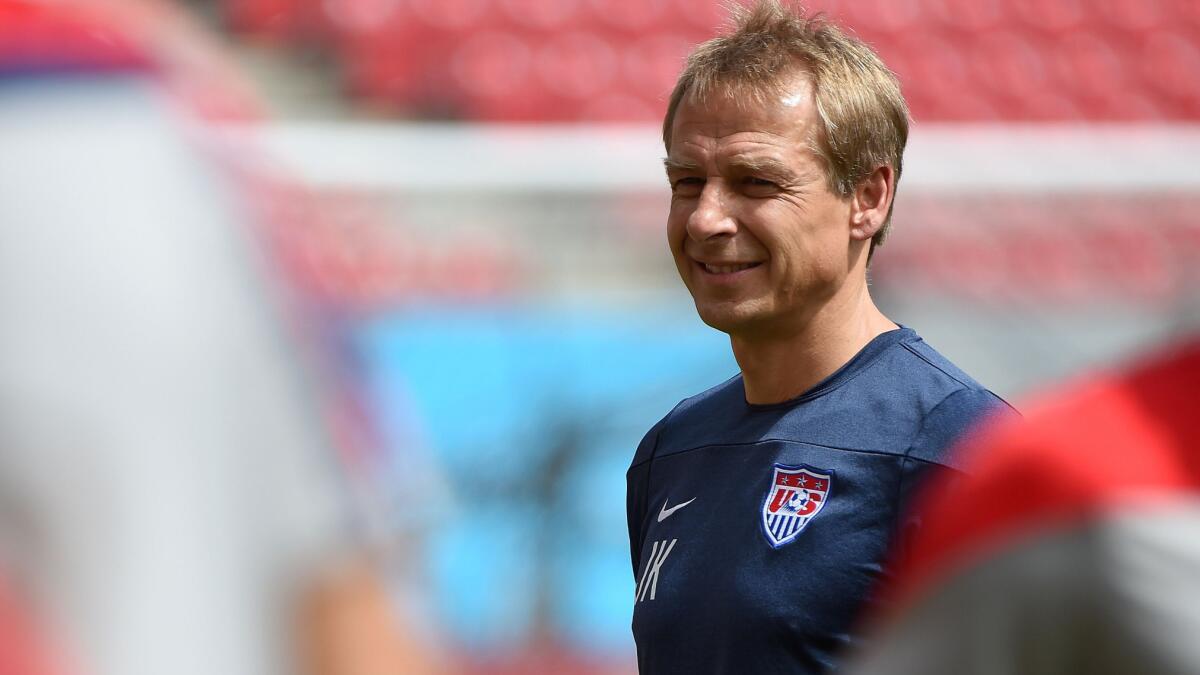U.S. must not divert from its game plan against Germany

- Share via
Argentina and Nigeria squared off Wednesday in a curious situation. A draw would be mutually beneficial, allowing each to maintain its position — first and second, respectively — in Group F of the World Cup.
Did they downshift and play cautiously? Not a chance. Both stayed within character and packed five goals in the first 50 minutes of a 3-2 Argentine win.
The match is instructive in the hubbub surrounding U.S.-Germany, in which a tie would serve both teams exceedingly well. Only if there is a winner would the loser risk not advancing. A draw sends them hand-in-hand into the next round.
There is danger in diverting from one’s style, as Italy learned in a 1-0 defeat to Uruguay that sent the overly conservative Azzurri home.
Plus there is massive, intense scrutiny on this tournament. A team that doesn’t go all out at the start exposes itself to criticism, if not shame. A nation steeped in soccer lore might accept such strategy. America is not there yet.
Above all, there is no blueprint for playing toward a tie. The obvious approach would be packing players on the defensive half of the field. But trying to repel shots for 90 minutes carries its own hazards. All it takes is one to get through.
Of course, if the squads find themselves dead-even after an hour or so, they might elect to pull back and avoid risk-taking for the duration. There would be no reaming out afterward from fans and media.
Until then, it’s game on. Or should be.
More to Read
Go beyond the scoreboard
Get the latest on L.A.'s teams in the daily Sports Report newsletter.
You may occasionally receive promotional content from the Los Angeles Times.







